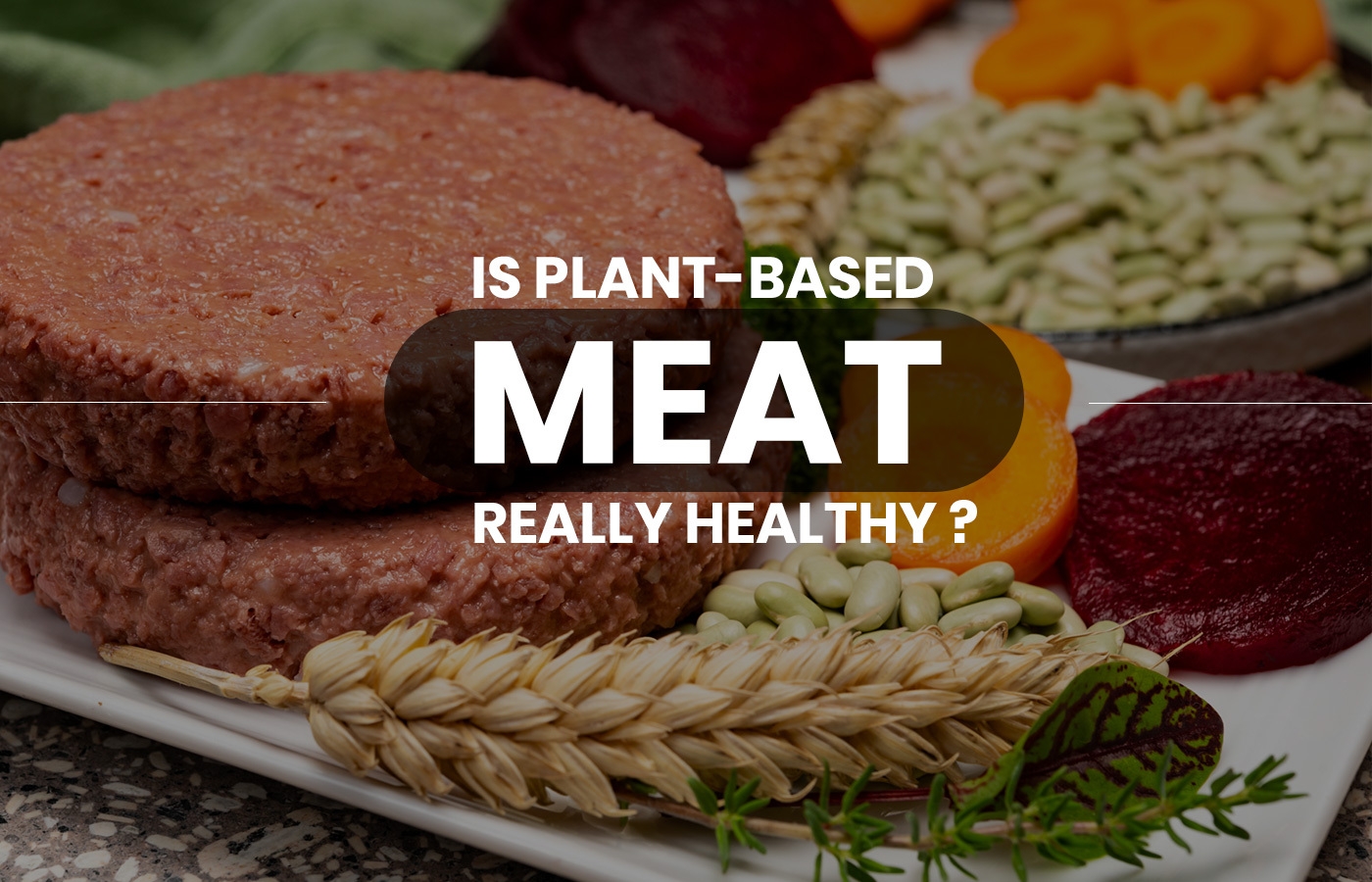Are You Making Wise Choice Opting for Plant-Based Meat Over Regular Meat?
Many people are shifting toward plant-based meat alternatives for several reasons including health, ethical, and environmental; however, these substitutes are not always healthiest
There are so many meatless alternatives – such as Beyond Meat and the Impossible Burger – that are seen as a boon for the environment, but these foods are not always the healthiest of options. Brands of plant-based meat have different nutrient densities and have different nutritional strengths and deficiencies. If you are someone who wants to quit meat and try some eco-friendly alternatives, you should be mindful of the nutritional intake and how it may affect your health.
Reportedly, fake meats are ultra-processed and can have over 40 components, including titanium dioxide, a whitening agent used in paint and plastics, and methylcellulose, a bulking agent usually used in laxatives. Plant-based meat is a term used to describe foods that mirror meat products in taste and nutritional values but are made from plants. Let’s find out what they are, how they are made, and whether you should be eating these plant-based meat substitutes.
What is Plant-Based Meat?
Made from plants and manufactured to feel, taste, and look like real meat, plant-based meat or vegan meat has gained immense popularity in the past few years. Designed to mirror the sensory experience and nutritional value of red meat, plant-based meats are marketed under the premise of human and environmental health benefits that aim to allure a wide consumer base.
In some aspects, these meat substitutes are healthier than regular meat as they have low amounts of saturated fat and calories. Moreover, they utilize healthy plant-derived ingredients such as coconut oil, vegetable protein extract, and beet juice.
Plant-based meats are made from plants to supply meat-free options, whether in the form of burgers, bacon, steaks, nuggets, sausages, and many other versions of the famous foods. The Impossible Burger and Beyond Meat have emerged as the pioneers of this emerging industry.
The term “plant-based meat” is self-explanatory: it is meat made from plants. Sourcing ingredients from many different plant sources, these meats are packed with a variety of flavors and textures to mimic the real thing. The most common of these ingredients include soybeans, lentils, quinoa, vegetable proteins like peas, coconut oil, and vital wheat gluten called seitan.
What Goes Into the Making?
While it sounds pretty simple as throwing some vegetable products together to make fake meat, the process is more complex than it sounds. One process of making fake meats that give a texture similar to that of animal-based meat is called extrusion. It is a method in which proteins are heated, cooled, and then cooked, which is used by Beyond Meat. On the other hand, the heme found in the Impossible Burger is made from the fermentation of yeast.
The process usually begins by selecting the highest quality ingredient that can mirror the key properties of meat such as appearance, texture, taste, and so on. To give the product a meaty look, many manufacturers use vegetable and fruit extracts including beetroot, radish, and tomato. Some blend these extracts to achieve the all-natural coloring for meat substitutes such as plant-based sausage, chicken, and beef.
To imitate the springy texture and self-binding properties of animal protein, plant-based ingredients such as coconut, canola, and shea oils offer fat to help bind the protein together and give that distinctly juicy texture.
Should You be Eating Plant-Based Meat?
The rising popularity of plant-based meat alternatives has stirred a debate about its health benefits, putting the trend under a microscope. As plant-based meats contain plenty of vegetables, whole grains, legumes, and nuts, they are often healthier than their animal-based counterparts. It also saves you from the cholesterol and high levels of saturated fat found in many animal proteins.
However, plant-based meats can still not be labeled healthy food. Plant-based fake meats are highly processed products, and having undergone processing such as frozen, canned, dried, and baked pasteurized, these foods contain additives such as high amounts of sugar, salt, oil, and calories. Moreover, they generally contain dextrose and maltose, which are forms of processed sugar, along with trans fats and hydrogenated oils.

For example, plant-based meat burger patties have some unhealthy highly-processed compounds such as saturated fat, high amounts of sodium, and reduced nutrient factor. Moreover, where plant-based foods are healthier, plant-based meat substitutes are a controversial food division.
Moreover, even though small portions of plant-based saturated fat – coconut products, avocado, extra-virgin olive oil, and dark chocolate – are healthy for a balanced diet, their regular consumption may lead to an increased rate of heart disease and premature death. Besides, a diet rich in sodium can cause higher blood pressure, leading to atherosclerosis, heart disease, stroke, and even increased risk of cognitive decline with age.
Plant-Based Meat: A Controversial Food Division
According to Dr. Frank Hu, chairman of the nutrition department at the Harvard T.H. Chan School of Public Health, the effect of plant-based meats on your health depends on how you eat them. If you are looking to improve your dietary intake, these food products are harmful to you.
However, if you are replacing a hamburger with a plant burger for environmental reasons or ethicality, it does make sense. Although regular consumption of processed meats, even plant-based, can cause some serious health issues.
Moreover, studies comparing the metabolic effects of eating beef burgers versus plant burgers are still in progress, making it quite difficult to put these foods in the shades of black and white. For now, we will have to think of plant-based meat alternatives in gray areas of dietary goodness.

